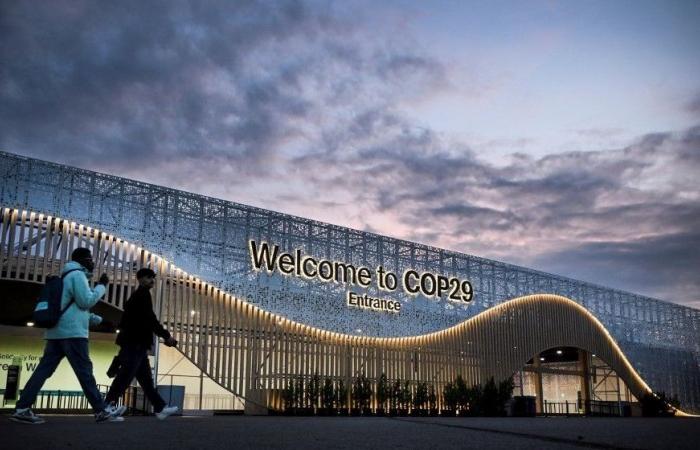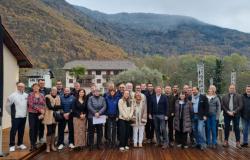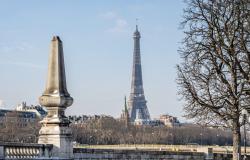The economy of its host country depends largely on hydrocarbons. The question of financing the ecological transition will arise seriously as Europe must finance its own defense more. China does not want to get involved when the country is no longer “developing”. The recent election of Donald Trump does not give any sign in favor of the climate from the world's largest economy. A final obstacle that we still talk too little about: all countries are relying on decarbonization technologies that are not yet complete.
A delay from the start
COP29, which began in Baku on Monday November 11, was announced to focus mainly on financing mechanisms for the ecological transition, particularly for countries in the South. Marc-Antoine El Mazéga, director of the IFRI Energy and Climate Center, emphasizes that funding promises, such as the 100 billion annually promised for a decade, have still not been fully respected: “There is a real disconnect between the financial commitments of the countries of the North and the real needs of the countries of the South, particularly to invest in renewable energies which require significant initial capital, which these countries do not have.” This lack of liquidity and the inability to access credit at reasonable rates greatly hinders the acceleration of green projects in these regions, thus exacerbating overall disparities.
Journal at 7 p.m Listen later
Lecture listen 14 min
Azerbaijan, oil dictatorship and host country
One of the most debated aspects of this COP 29 is the choice to organize the conference in Azerbaijan, a hydrocarbon-producing country, which arouses numerous oppositions. For Jean-Baptiste Fressoz, historian of science, there is a paradox: “Oil countries like Azerbaijan are often stigmatized, but it is ironic that countries like the UK, which hosted a previous COP, produce much more oil. This double standard actually masks deeper diplomatic issues, including human rights violations in areas like Nagorno-Karabakh.” This highlights a contradiction of these climate summits: the energy transition is being carried out in a world where fossil fuels still dominate geopolitical and strategic dynamics.
The Transition Listen later
Lecture listen 4 min
Is innovation the solution?
The debate on technological solutions reveals the deep differences between the parties, particularly around carbon capture and storage (CCS). Jean-Baptiste Fressoz expresses reservations about the effectiveness of these technologies: “These solutions have been promoted by the fossil industry since the 1990s, but in reality they are expensive and often impractical on a large scale. Their inclusion in the Paris agreement is based on uncertain technological promises, when we need to reduce emissions immediately. This criticism points to a form of dependence on unproven technology, which could ultimately delay real climate action, maintain an illusion of progress and symbolizes a sometimes assumed headlong rush.
Time for debate Listen later
Lecture listen 38 min
Setting a cost for carbon emissions
The question of relocating production to limit environmental impacts is at the heart of the negotiations. Claire Tutenuy highlights the need for a global carbon price to encourage the structuring of a circular economy and better management of negative externalities: “Today, the global economy is optimized for cheap fossil fuels, with a carbon price often zero. If we truly want to reduce emissions, we need a reassessment of these costs and a relocation that is not motivated by state protectionism, but by environmental optimization.” However, excessively strong protectionist policies could slow down innovation and increase the costs of ecological projects, further complicating efforts to achieve global climate objectives and limit the consequences of global warming on our societies.
Do you hear eco? Listen later
Lecture listen 58 min






